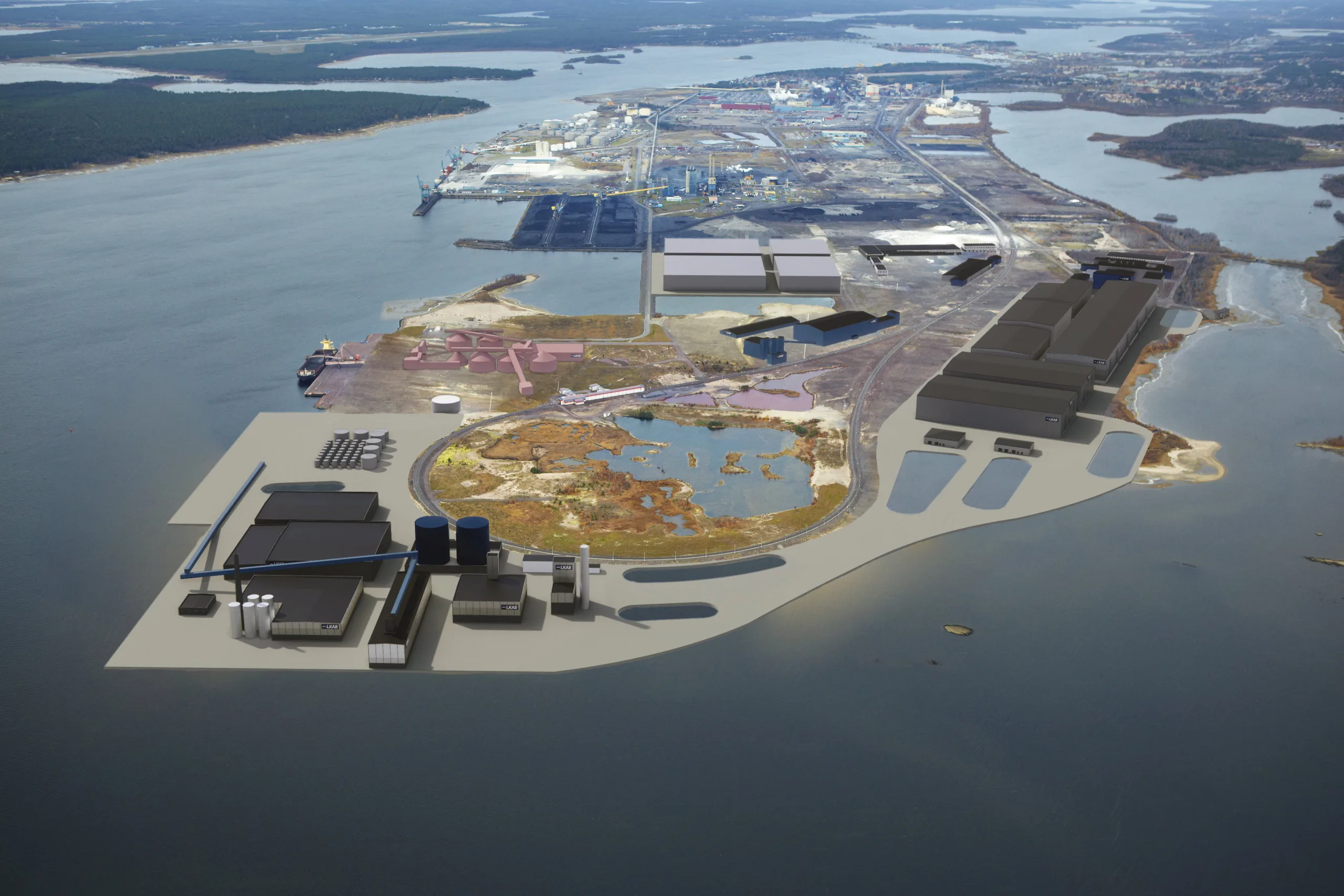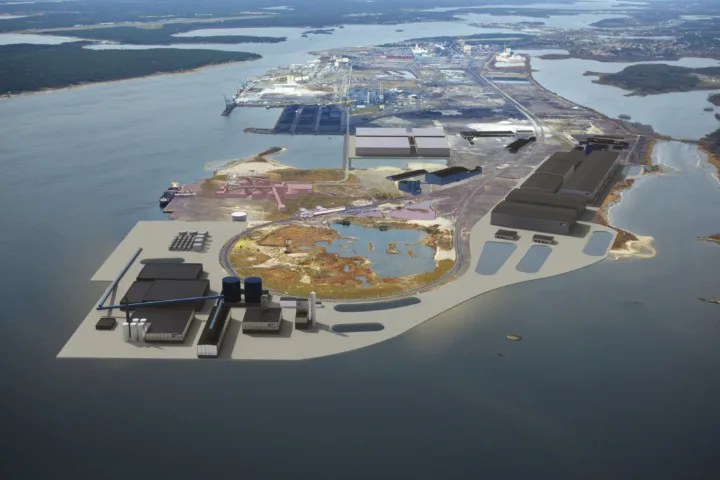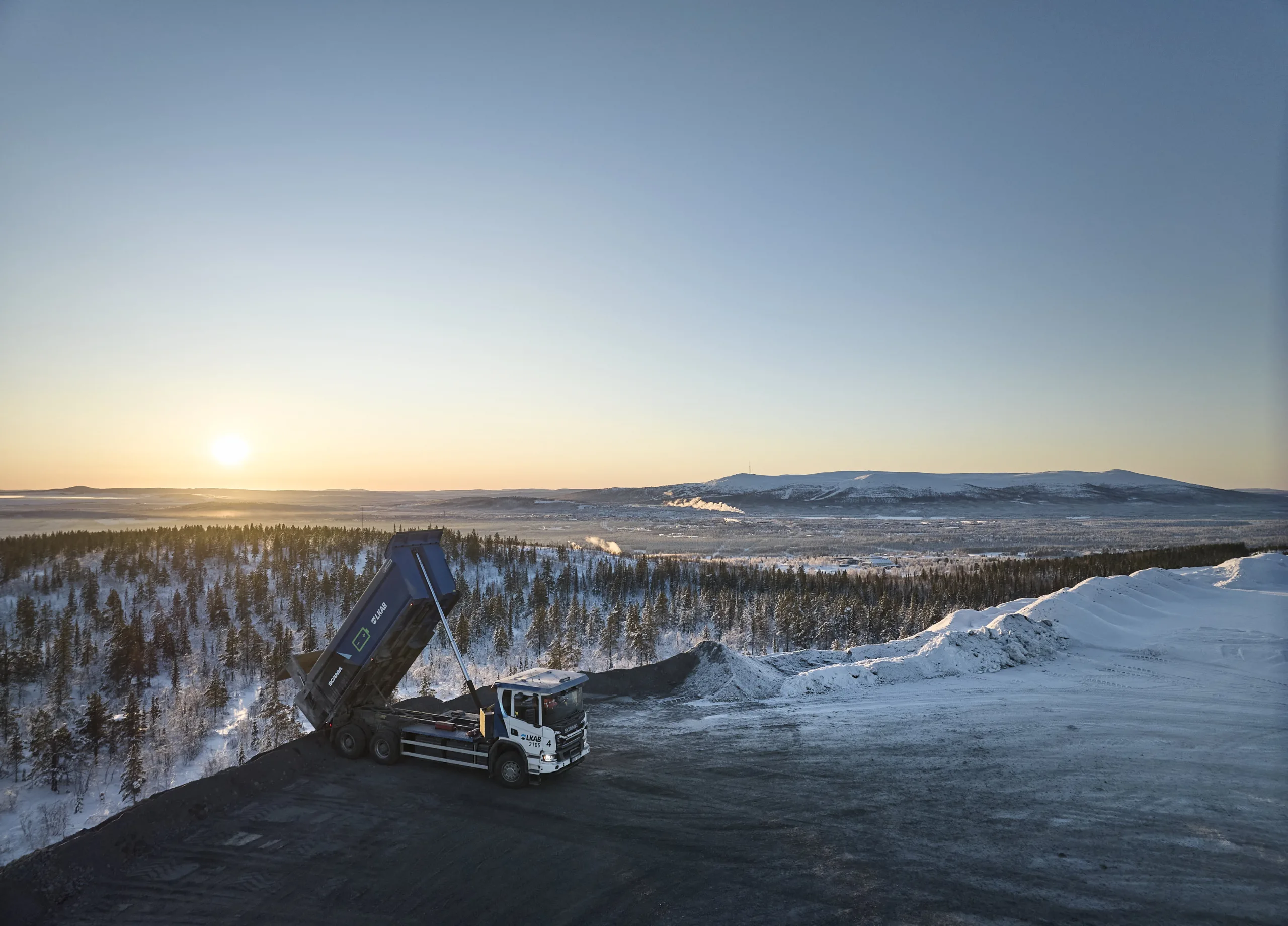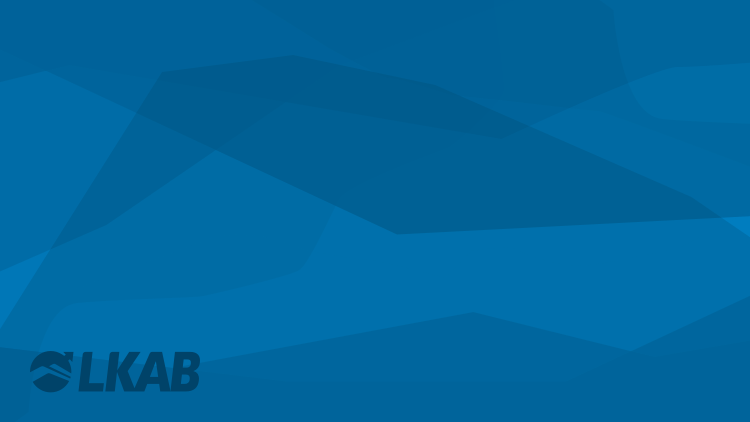LKAB applies for three strategic projects in the EU for mining and upgrading rare earth metals

LKAB is now applying to make the iron ore mine in Gällivare, the planned industrial site in Luleå, where LKAB will separate phosphorus and rare earth metals, and the large deposit of rare earth metals in Kiruna strategic projects in line with the EU's Critical Raw Material Act.
The aim of the EU’s Critical Raw Material Act is to secure Europe’s supply of critical minerals via increased production within the EU as well as through diversified supply chains. Underlying this, among other factors, are the geopolitical situation and a dramatic increase in demand for certain minerals, not least to meet the need for electrification and digitalisation.
The EU uses about 30 per cent of all minerals mined globally but produces only three percent within the EU. This makes EU value chains vulnerable. The EU is also heavily dependent on individual countries for certain raw materials.
“It’s a matter of taking the wider view. Growth in demand for rare earth metals for the electrification of our societies, for example, motors for electric vehicles, poses the risk of the supply of these raw materials becoming a bottleneck in the green transition. With increased geopolitical uncertainty and the fact that China now controls nearly the entire value chain there is a considerable economic risk for European industry. Here, LKAB has three (viable) projects, all of which can contribute to increasing the EU’s self-sufficiency in terms of supply of rare earth metals”, says Jan Moström, President and CEO.
Sustainable extraction from today’s waste streams
LKAB wishes to broaden its business by investing in the extraction of critical minerals. The plan is to begin extracting critical minerals in the existing iron ore mine in Gällivare with the establishment of a new processing plant for apatite. The second project is the planned industrial site in Luleå for upgrading apatite from Gällivare. Here, LKAB plans to produce rare earth metal oxides, phosphoric acid for production of mineral fertiliser and gypsum. This will be accomplished by utilising material streams from iron ore production in Gällivare which have thus far been considered waste.
By 2030, the ambition is to have commenced production of rare earth oxides on a growing global market which is today dominated by China. Rare earth metals are decisive raw materials for, among other things, electrification, digitalisation and the defence industry.
The strategic plan also includes subsequent expansion in production via future mining of the new deposit in Kiruna. At the close of 2023, LKAB’s mineral resources of REE oxides (Rare Earth Oxides) in the Per Geijer deposit amounted to about 1,7 million tonnes in situ, making it one of Europe’s largest deposits of rare earth metals.
“Our efforts to develop methods for utilising mine waste from our existing mine, together with our successful prospecting, not least with respect to the new deposit in Kiruna, put us in good standing to become a central player in the transition and a significant contributor to increased raw materials supply in Europe. LKAB already mines 80% of the iron ore that is mined in the EU, and we are leading the transition of the iron and steel industry. We now also hope to build up a position based on rare earth metals and phosphorus for mineral fertiliser for agriculture”, says Jan Moström.
Increased resistant to price manipulation
The new deposit is essentially a world-class iron deposit which, as things stand today, ensures 20-30 years of mining in Kiruna.
“We now aim to build sustainable business, based on rare earth metals, step by step. Our mines are fundamentally iron ore mines where rare earth metals are a secondary stream; therefore, we believe that we can become more resistant to the type of price manipulation on the market for rare earth metals which we have seen historically. Thanks to the fact that this deposit contains a combination of minerals, possible future mining would be both economically interesting and more sustainable”, says Jan Moström.
At the same time, expansion and mining of the new deposit will necessitate several factors falling into place in the coming years.
“Realising this will require infrastructural investment in the form of an expanded power grid and more rail-freight capacity on the Iron Ore Line. Current capacity will not suffice to meet demand. In order to obtain the necessary permits as quickly as possible, we also wish to find good solutions with other stakeholders who are affected. Our hope is that, if our efforts are deemed strategic projects in the EU, this will hasten the process, so that we can take advantage of these opportunities”, says Jan Moström.
Facts:
LKAB’s deposits contain all 17 rare earth metals, of which Nd, Pr, Dy, Tb, Gd, Sm and Ceare all classified as critical raw materials in the EU.
Contact: Anders Lindberg, Group Media Relations Manager at LKAB, Tel: 46 (0)980 783 55. E-mail:anders.lindberg@lkab.com
LKAB is an international mining and minerals group that offers sustainable iron ore, minerals and special products. We are committed to developing carbon-free processes and products by 2045, leading the transformation of the iron and steel industry. Since 1890 we have developed through unique innovations and technological solutions and are driven forward by almost 5,200 employees in 12 countries. In 2023, the LKAB group had sales of about SEK 43 billion.






